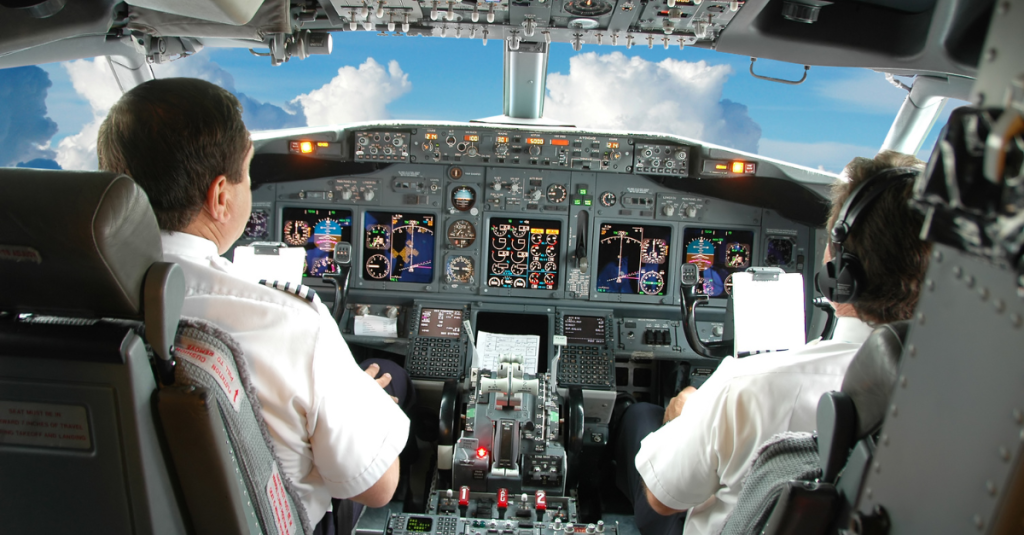The British Airline Pilots’ Association (Balpa) has unveiled a comprehensive policy agenda aimed at the incoming government, advocating for transformative changes within the aviation sector. With pivotal national elections on the horizon, Balpa has outlined key reforms necessary for workforce development and industry sustainability.
Balpa, representing a significant portion of the UK’s pilot workforce, underscores the aviation sector’s substantial contribution to the economy. It stresses the necessity for political support in driving forward pivotal issues including training costs, employment conditions, and environmental sustainability. This call to action highlights the sector’s integral role in connecting the UK globally.
High Training Costs and Their Impact
The British Airline Pilots’ Association (Balpa) has brought attention to the significant financial burden placed on aspiring pilots due to the excessive training costs, which can reach up to £130,000. This financial strain deters many talented individuals from pursuing a career in aviation. Consequently, Balpa proposes that the government implements protective measures for self-funding cadets to alleviate these pressures.
Industrial Practices and Employment Conditions
The pilots’ union has also highlighted the need for urgent reform of harmful industrial practices that have emerged, such as ‘fire and re-hire.’ This strategy, along with anti-union legislation, has been criticised for undermining employees’ rights and workplace conditions. Thus, Balpa advocates for the repeal of such practices and calls for improved employment conditions that ensure fair terms for the workforce.
Achieving Jet Zero and Sustainable Aviation
Balpa insists on the acceleration of the aviation industry’s journey towards jet zero and sustainability. With decarbonisation being a primary focus, the union stresses the importance of the incoming government prioritising aviation’s environmental commitments. Notably, approximately one-quarter of electoral constituencies have significant employment ties to the aviation sector, magnifying the importance of sustainable advancements.
Pension Protections for Aviation Workers
Another critical area Balpa targets is the safeguarding of pilots’ pensions. These pensions have been accrued over decades, and the union strongly argues for governmental protections against reductions in benefits. This is crucial not only for current pilots but also for the future of the aviation workforce, ensuring their financial security post-retirement. Such measures would secure trust and loyalty within the industry.
Political Party Commitments and Policy Directions
Different political parties are offering varied commitments regarding the aviation sector. The Labour Party has promised support for sustainable aviation fuel and modernising airspace, yet stakeholders seek more details on these promises. In contrast, the Conservatives have pledged to support aviation growth and decarbonisation through sustainable aviation fuel mandates and investments in future technology. The Liberal Democrats and Green Party also outline their visions, focusing on zero-carbon flight research and levies to reduce flight demand, respectively.
Airport Operations and Infrastructure Development
Airport Operators Association’s CEO, Karen Dee, has expressed satisfaction with certain party commitments like sustainable aviation fuel and airspace improvements. She did however stress the necessity for detailed plans to support airport infrastructure development to meet modern economic demands. The planning systems currently hinder progression, affecting airports’ ability to fully utilise their facilities for economic growth.
Encouraging Tourism and Addressing Aviation Needs
Attention is drawn to the absence of comprehensive policies to bolster tourism, which is vital for the UK’s economic footprint. Enhanced measures such as duty-free arrivals and tax-free shopping, alongside modernising transit passenger rules, are advocated as potential incentives to attract more visitors.
As the new government prepares to take office, it must consider Balpa’s critical recommendations to ensure the aviation sector remains robust and competitive. With clear directives on training, employment practices, and environmental goals, these policies could significantly impact the industry’s trajectory.
By addressing these key concerns, the government can cultivate an environment conducive to the growth and success of the aviation industry, aligning with both economic and environmental objectives. Balpa’s vision offers a pathway to a more sustainable and equitable future for the aviation workforce and the broader economy.

